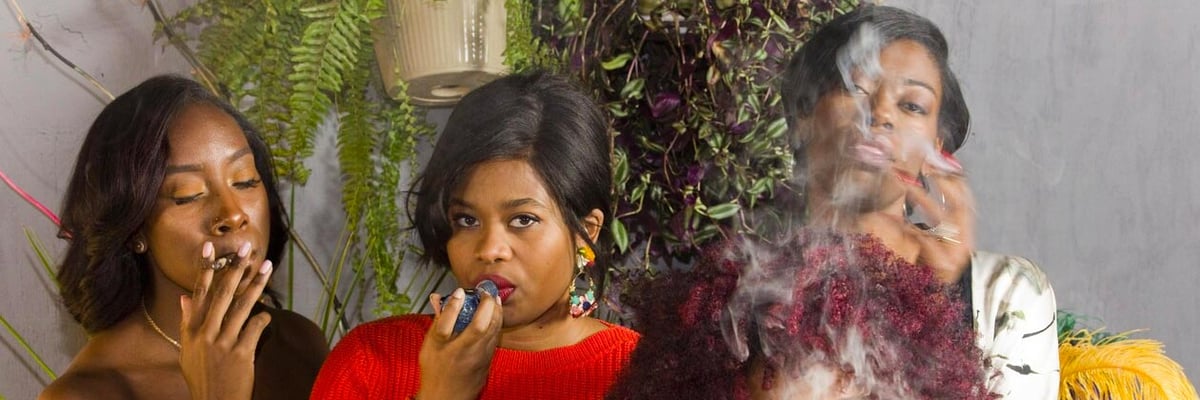Author: Ben Hartman | January 18, 2023 | 4 Min Read
“More Awareness Doesn’t Mean More Action” - Kassia Graham of Cannaclusive on Social Equity and Cannabis

In the Summer of 2020, tens of millions of Americans took to the streets to demand social justice in the largest protests in the history of the United States. The protests also drove many in the cannabis industry to take a closer look at the need for greater diversity and social equity in cannabis and how America’s war on drugs has ravaged communities of color.
But two and a half years after the murder of George Floyd by Minneapolis police officer Derek Chauvin, how far have we come?
“In general, there’s more awareness, but more awareness does not necessarily mean more action,” Kassia Graham, the Director of Community and Strategy at Cannaclusive told Rootwurks this week.
“I think we haven’t come far enough,” Graham said, adding that, like the protests in 2020, “people paid attention for a very short period of time. People were very interested, but once they realized that it was hard work and required consistency, they fell off.”
She added, “so the people who are impacted and need social equity the most are the ones who are still doing all the hard work, in the same way, that Black folks and other people of color who have been impacted by police brutality are still the ones who are doing all the hard work.”
Cannaclusive was founded in 2017 “to facilitate fair representation of minority cannabis consumers,” according to the company website.
According to figures published by MJBizDaily in November 2022, racial minorities in cannabis make up only 12.1% of executives, down from 16.8% in 2017. The U.S. Bureau of Labor Statistics estimates that racial minorities account for 20.1% of all CEOS. The report also found that women hold only 23.1% of executive positions in cannabis, below the national average for all businesses, according to MJBizDaily.
Cannaclusive states that it “makes it easier for [cannabis] brands to communicate with diverse audiences and ensure that minority consumers are not an afterthought, but a valued ally in the fight for legalization and destigmatization.”
The founders have stated that they launched Cannaclusive “after attending multiple cannabis events in Los Angeles, California, where they often felt like “the token Black person.”
To promote better representation in cannabis, the company provides a database of free stock photos (like the main picture above) that show a diverse range of people enjoying cannabis, as well as “The Accountability List” and the “Inclusivebase.”
The InclusiveBase is a database of people of color who work in cannabis, which can be easily shared to help make connections and network. The Accountability List is a database of companies in cannabis that lists past or current actions taken for social equity as well as if it is BIPOC (Black, Indigenous, and People of Color) owned. The list is meant to help people “be aware of if a brand shares their values” and is helping organizations that support BIPOC people and other marginalized communities, according to Graham.
In the two and a half years since the Summer 2020 protests, Graham said that “what’s gotten better in one way is that social equity is at the core of New York’s adult-use cannabis program, and while it’s not necessarily going the smoothest, I think the fact that they came out of the gate with [social] equity being a primary objective is very important and others states that end up having adult use [cannabis] will follow suit.”
What does a successful social equity program look like?
Graham said that any successful social equity program in cannabis must have as its first step the expungement of criminal records “for people who have been impacted by the War on Drugs.”
But there is also a great importance to be placed on education and awareness, according to Graham.
“We need more education about cannabis, the plant, cannabis as medicine, and cannabis for adult use,” Graham said.
“If people are unaware of the pros and cons of cannabis, then they won't have a proper framework from which to figure out what's good for them.”
But largely, it has to do with seeing social equity as not merely a Black-or-white issue, Graham said.
“People consistently look at it [social equity] through a Black and white lens versus seeing all the colors that are in between and the different intersections,” Graham said, adding that it can include socioeconomic status, whether or not someone is disabled or able-bodied, and many other facets and “not just simply Black and white or men versus women.”
“I’ve never seen cannabis as a bad thing”
For two decades, Graham has worked with various organizations ranging from Fortune 100 companies to non-profits, boutique agencies, and influencers. Recently, she was appointed to the advisory board of the Cannabis Workers Coalition.
Graham is also a two-time cancer survivor who has experienced firsthand the healing potential of cannabis.
“Cannabis was essential in my healing,” Graham said, adding that it helped ease her nausea and pain and was (and still is) an effective sleep aid.
But she also learned about cannabis at a much younger age. Born in Jamaica, Graham saw how her Rastafarian great-uncle would use cannabis to create various medicinal tinctures and concoctions.
“I’ve never seen it as a bad thing,” Graham said of cannabis.
What role do cannabis consumers have in social equity?
The industry itself may have a long way to go when it comes to inclusion and diversity in cannabis and inclusion, but is part of the onus also on consumers?
“Absolutely,” Graham stated.
She described this consumer responsibility as not only looking at whether or not a company is owned by a BIPOC person or a woman but also how and where it was grown and how the company treats its employees.
“Advocacy starts at home,” Graham stated.
Contributors

Ben Hartman
From HACCP certification to the basics of hygiene, our on-demand courseware has you covered.







